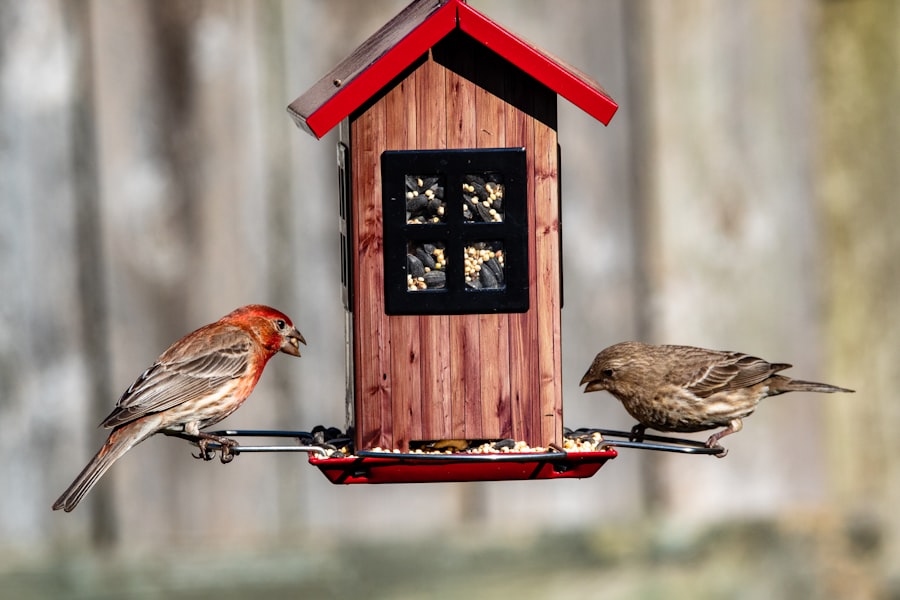Keeping live chickens for egg production has gained popularity in recent years as individuals seek greater self-sufficiency and sustainability. This practice offers several advantages, including a consistent supply of fresh eggs, natural pest control, and the satisfaction of animal husbandry. However, it also presents challenges and risks that potential chicken keepers should consider.
The primary motivation for many to keep chickens is the access to fresh eggs. Collecting eggs from one’s own backyard provides a sense of accomplishment and ensures knowledge of the eggs’ origin. Additionally, chickens contribute to natural pest management by consuming insects and other small pests in the yard.
Many people also find chickens to be enjoyable pets that can provide entertainment and companionship for the entire family. Despite these benefits, it is crucial to be aware of the potential health risks associated with keeping live chickens. These may include exposure to diseases such as Salmonella or avian influenza.
There are also risks to the chickens themselves, including predators, extreme weather conditions, and potential illness. Legal considerations, such as local zoning laws and regulations regarding backyard poultry, must also be taken into account. Prospective chicken keepers should thoroughly research and prepare for these challenges to ensure a safe and rewarding experience for both themselves and their chickens.
This includes implementing proper hygiene practices, providing adequate housing and protection, and staying informed about relevant local laws and regulations.
Table of Contents
- 1 Health risks associated with keeping live chickens
- 2 Potential dangers to the chickens themselves
- 3 Considerations for housing and sanitation
- 4 Zoonotic diseases and other health concerns
- 5 Legal considerations and regulations
- 6 weighing the risks and benefits of keeping live chickens
- 7 FAQs
- 7.1 What are the potential dangers of keeping live chickens for eggs?
- 7.2 Can keeping live chickens for eggs pose health risks?
- 7.3 Are there any safety concerns when handling live chickens?
- 7.4 Do live chickens attract predators or pests?
- 7.5 What are the benefits of keeping live chickens for eggs?
Key Takeaways
- Keeping live chickens for eggs can be a rewarding and sustainable practice for many households
- Health risks associated with keeping live chickens include exposure to salmonella and avian influenza
- Potential dangers to the chickens themselves include predation, disease, and injury
- Considerations for housing and sanitation are important to prevent the spread of disease and ensure the well-being of the chickens
- Zoonotic diseases and other health concerns should be carefully considered and managed when keeping live chickens
- Legal considerations and regulations may vary by location and should be researched before starting a chicken-keeping operation
- Ultimately, weighing the risks and benefits of keeping live chickens is important for making an informed decision about whether it is the right choice for your household
Health risks associated with keeping live chickens
Salmonella and Food Poisoning
While keeping live chickens can be a rewarding experience, it’s essential to be aware of the potential health risks associated with it. One of the main health risks is the potential for exposure to salmonella, a bacteria that can be present in chicken feces. Salmonella can cause food poisoning in humans, leading to symptoms such as diarrhea, fever, and abdominal cramps.
Good Hygiene Practices
It’s crucial to practice good hygiene when handling chickens and their eggs. This includes washing your hands thoroughly after handling them and cooking eggs thoroughly before eating them. In addition to salmonella, there is also a risk of exposure to other pathogens and parasites that can be present in chicken feces. These can include E. coli, campylobacter, and various types of worms.
Maintaining a Clean and Safe Environment
To reduce the risk of exposure to these pathogens, it’s essential to keep the chicken coop clean and well-maintained. Regular cleaning and disinfection of the coop, as well as proper disposal of chicken waste, can help to minimize the risk of illness for both the chickens and their owners.
Protecting the Chickens Themselves
It’s also important to be aware of the potential dangers to the chickens themselves. By taking the necessary precautions and maintaining a clean and safe environment, you can help ensure the health and well-being of both your chickens and your family.
Potential dangers to the chickens themselves

In addition to the health risks associated with keeping live chickens, there are also potential dangers to the chickens themselves that need to be considered. One of the main dangers is predation by other animals, such as foxes, raccoons, and birds of prey. It’s important to take steps to protect the chickens from these predators, such as by providing a secure coop and run and using fencing or netting to keep out unwanted visitors.
Another potential danger to chickens is disease. Chickens can be susceptible to various diseases, including respiratory infections, parasites, and avian influenza. It’s important to monitor the health of the chickens regularly and seek veterinary care if they show signs of illness.
Providing a clean and well-maintained living environment for the chickens can help to reduce the risk of disease and keep them healthy.
Considerations for housing and sanitation
When keeping live chickens, it’s important to provide them with a suitable living environment that meets their needs and helps to keep them healthy. This includes providing a secure coop and run that protects them from predators and provides them with enough space to move around and exercise. The coop should also be well-ventilated and provide protection from the elements, such as wind and rain.
In addition to providing a suitable living environment for the chickens, it’s also important to maintain good sanitation practices to reduce the risk of disease and keep the chickens healthy. This includes regularly cleaning and disinfecting the coop, as well as providing clean bedding and nesting material. It’s also important to properly dispose of chicken waste to prevent the buildup of pathogens and parasites.
Zoonotic diseases and other health concerns
In addition to salmonella, there are other zoonotic diseases that can be transmitted from chickens to humans. These can include avian influenza, campylobacter, and E. coli. It’s important to be aware of these potential health concerns and take steps to minimize the risk of exposure. This can include practicing good hygiene when handling chickens and their eggs, as well as seeking veterinary care if the chickens show signs of illness. In addition to zoonotic diseases, there are other health concerns that need to be considered when keeping live chickens. These can include respiratory infections, parasites, and injuries from pecking or fighting. It’s important to monitor the health of the chickens regularly and seek veterinary care if they show signs of illness or injury. Providing a clean living environment for the chickens can help to reduce the risk of disease and keep them healthy.
Legal considerations and regulations

Researching Local Laws and Regulations
Some localities have zoning laws or homeowners’ association rules that restrict or prohibit keeping chickens. It’s crucial to research these regulations before getting chickens to ensure that you are in compliance with local laws.
Regulations for Chicken Care and Keeping
In addition to zoning laws and homeowners’ association rules, there may be regulations related to the care and keeping of chickens that need to be followed. These can include requirements for providing a suitable living environment for the chickens, as well as regulations related to waste disposal and disease control.
Ensuring Compliance with Regulations
It’s vital to be aware of these regulations and ensure that you are in compliance with them when keeping live chickens. By doing so, you can avoid any potential legal issues and provide a safe and healthy environment for your chickens.
weighing the risks and benefits of keeping live chickens
In conclusion, keeping live chickens for eggs can be a rewarding experience, but it’s important to be aware of the potential risks and challenges associated with it. This includes health risks for both humans and chickens, potential dangers to the chickens themselves, considerations for housing and sanitation, zoonotic diseases and other health concerns, as well as legal considerations and regulations. By being aware of these factors and taking steps to mitigate the risks, it is possible to enjoy the benefits of keeping live chickens while minimizing the potential drawbacks.
This can include practicing good hygiene when handling chickens and their eggs, providing a suitable living environment for the chickens, monitoring their health regularly, and being aware of any legal considerations that may apply in your area. Ultimately, weighing the risks and benefits of keeping live chickens is a personal decision that each individual or family must make based on their own circumstances and priorities. With proper care and attention, it is possible to enjoy the many benefits of keeping live chickens while minimizing the potential risks.
If you’re considering keeping live chickens for eggs, you may also want to think about the best way to set up a chicken coop and nest box. This article from Poultry Wizard provides helpful tips on creating a comfortable and safe environment for your chickens to lay their eggs. Check out their guide to chicken coop nest boxes for more information.
FAQs
What are the potential dangers of keeping live chickens for eggs?
There are several potential dangers associated with keeping live chickens for eggs, including the risk of disease transmission, injury from pecking or scratching, and attracting predators or pests.
Can keeping live chickens for eggs pose health risks?
Yes, keeping live chickens for eggs can pose health risks, as chickens can carry and transmit diseases such as salmonella. Proper hygiene and sanitation practices are essential to minimize these risks.
Are there any safety concerns when handling live chickens?
Yes, handling live chickens can pose safety concerns, as they may peck or scratch when feeling threatened or stressed. It’s important to handle chickens gently and with care to avoid injury.
Do live chickens attract predators or pests?
Yes, live chickens can attract predators such as foxes, raccoons, and birds of prey, as well as pests like rats and flies. Proper coop construction and predator-proofing measures are necessary to protect the chickens.
What are the benefits of keeping live chickens for eggs?
Keeping live chickens for eggs can provide a sustainable source of fresh, nutritious eggs, as well as the opportunity to engage in a rewarding and educational hobby. Chickens also help with pest control and provide natural fertilizer for gardens.
Meet Walter, the feathered-friend fanatic of Florida! Nestled in the sunshine state, Walter struts through life with his feathered companions, clucking his way to happiness. With a coop that’s fancier than a five-star hotel, he’s the Don Juan of the chicken world. When he’s not teaching his hens to do the cha-cha, you’ll find him in a heated debate with his prized rooster, Sir Clucks-a-Lot. Walter’s poultry passion is no yolk; he’s the sunny-side-up guy you never knew you needed in your flock of friends!







